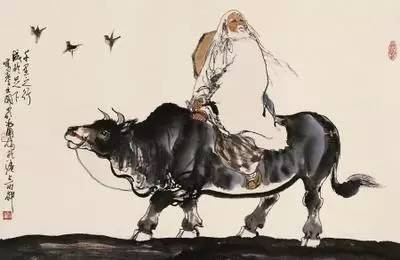| 64 | 道德經: | 其脆易泮,其微易散。 為之於未有,治之於未亂。 合抱之木,生於毫末;九層之臺,起於累土;千里之行,始於足下。 為者敗之,執者失之。 是以聖人無為故無敗;無執故無失。 民之從事,常於幾成而敗之。 慎終如始,則無敗事,是以聖人欲不欲,不貴難得之貨;學不學,復衆人之所過,以輔萬物之自然,而不敢為。 |
| Dao De Jing: | That which is at rest is easily kept hold of; before a thing has given indications of its presence, it is easy to take measures against it; that which is brittle is easily broken; that which is very small is easily dispersed. Action should be taken before a thing has made its appearance; order should be secured before the disorder has begun. The tree which fills the arms grew from the tiniest sprout; the tower of nine storeys rose from a (small) heap of earth; the journey of a thousand li commenced with a single step. He who acts (with an ulterior purpose) does harm; he who takes hold of a thing (in the same way) loses his hold. The sage does not act (so), and therefore does no harm; he does not lay hold (so) and therefore does not lose his bold. (But) people in their conduct of affairs are constantly ruining them when they are on the eve of success. If they were careful at the end, as (they should be) at the beginning, they would not so ruin them. Therefore the sage desires what (other men) do not desire, and does not prize things difficult to get; he learns what (other men) do not learn, and turns back to what the multitude of men have passed by. Thus he helps the natural development of all things and does not dare to act (with an ulterior purpose of his own). |

Dao] Tao Te Ching Chapter 64 - Sheets/Tovey
Oct 26 at 3:08 AM
64
That which is content is easy to hold.
That which does not manifest easily is a scheme.
That which is delicate is easy to dissolve.
That which is mysterious is easy to disperse.
Practice and do not possess.
Govern through not creating discord.
Join and embrace a tree as it grows from a tiny seedling.
A tower of nine stories rises from the Earth.
A thousand li* journey begins when you are sufficiently connected to the Earth.
Those who do, destroy.
Those who seize, lose.
The sages practice not doing (wu wei) and do not destroy.
They do not seize and they do not lose.
The people pursue their worldly affairs, and are often near success, and yet they fail.
When they are as careful to the end as they are in the beginning they will not fail in their worldly affairs.
The sage's desires are not deep-seated desires.
They do not value difficult-to-obtain treasures.
They study not studying.
They can help ten-thousand things (everything) naturally and do not venture to act.
* Li=1/3 mile
That which is content is easy to hold.
That which does not manifest easily is a scheme.
That which is delicate is easy to dissolve.
That which is mysterious is easy to disperse.
Practice and do not possess.
Govern through not creating discord.
Join and embrace a tree as it grows from a tiny seedling.
A tower of nine stories rises from the Earth.
A thousand li* journey begins when you are sufficiently connected to the Earth.
Those who do, destroy.
Those who seize, lose.
The sages practice not doing (wu wei) and do not destroy.
They do not seize and they do not lose.
The people pursue their worldly affairs, and are often near success, and yet they fail.
When they are as careful to the end as they are in the beginning they will not fail in their worldly affairs.
The sage's desires are not deep-seated desires.
They do not value difficult-to-obtain treasures.
They study not studying.
They can help ten-thousand things (everything) naturally and do not venture to act.
* Li=1/3 mile
No comments:
Post a Comment